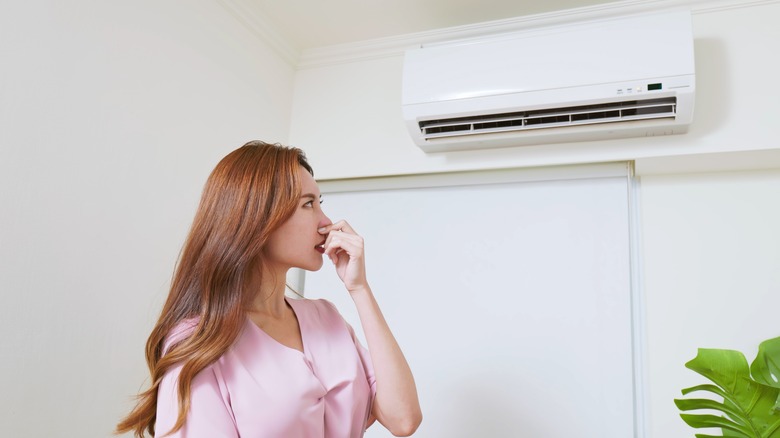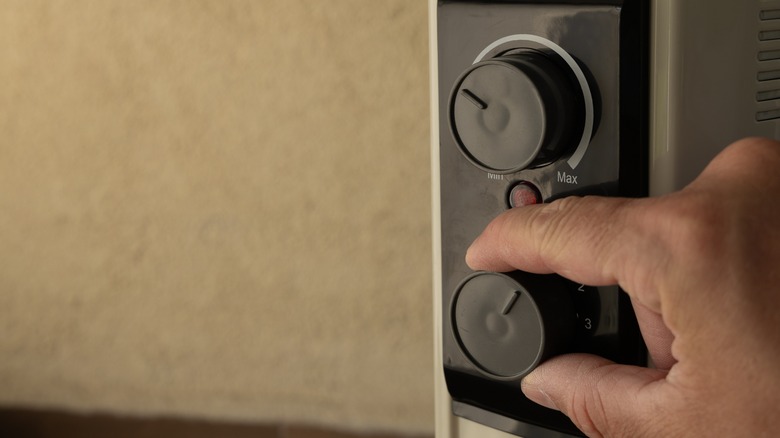Is Your Heater Giving Off A Fishy Smell? Here's What It Might Mean
You're finally settling in for a cozy morning with a blanket on your lap and tea in hand when a strange smell hits the room. You sit there wondering if you left dirty socks somewhere or whether your gym clothes betrayed you. But a closer sniff reveals the source of that unmistakable fishy aroma: It's your heater. A heater shouldn't smell like the seafood aisle, but when it does, it's usually a red flag and indicates an electrical issue.
Electrical failure doesn't pop out of thin air. It brews, slowly, the way trouble always does. The inside components of your heater can start overheating for all sorts of reasons, and each one is more common than you'd think. Sometimes, it's wear and tear doing its thing. Over time, wires loosen. The parts that were once snug and secure start creating extra resistance in the circuit, which leads to heat building up where it shouldn't. Then there is high voltage damage. A sudden surge can strain the wiring and leave the heater struggling to cope. And of course, if your circuit is carrying more load than it's designed for, it adds more stress and heat to the system.
Dealing with and preventing a fishy odor from your heater
If your heater smells fishy, first things first – turn it off immediately. We understand it's cold and all you want is to heat your home and get cozy, but a fishy scent is basically a warning sign from your heater. Continuing to run the heater could make a bad situation worse. It may, for example, lead to fire.
Next up, reach out to a professional. DIY fixes can feel satisfying, but resist the urge. Electrical failures can be unpredictable, and a single wrong move can put you and your home at risk. A licensed technician knows exactly where to look, what's safe to touch, and what should be replaced immediately.
Once things are sorted and your heater is back in tip-top shape, think about prevention. Make sure every part of your heater is free of debris and allows proper airflow. This might require you to remove debris from vents periodically. Also, clean the air filters often, and replace them when they start looking too worn out to do their job. Even better, consider investing in an energy-efficient model. It will ease the load on your heater, which lowers the odds of overheating. On top of that, it can help keep the energy cost of your heater down while keeping your home warm and safe.

